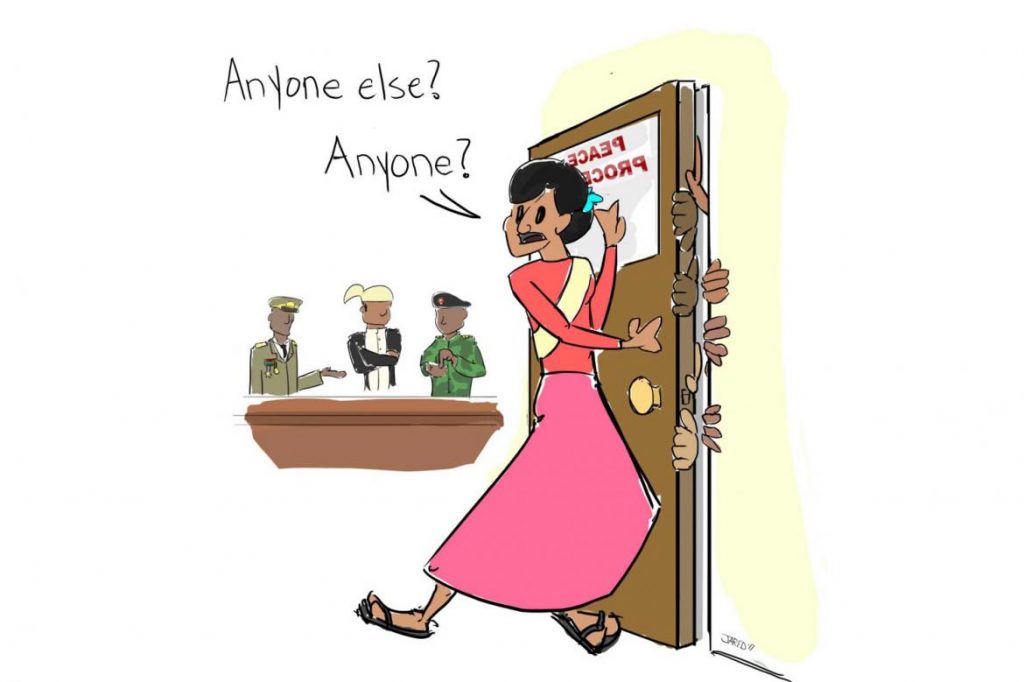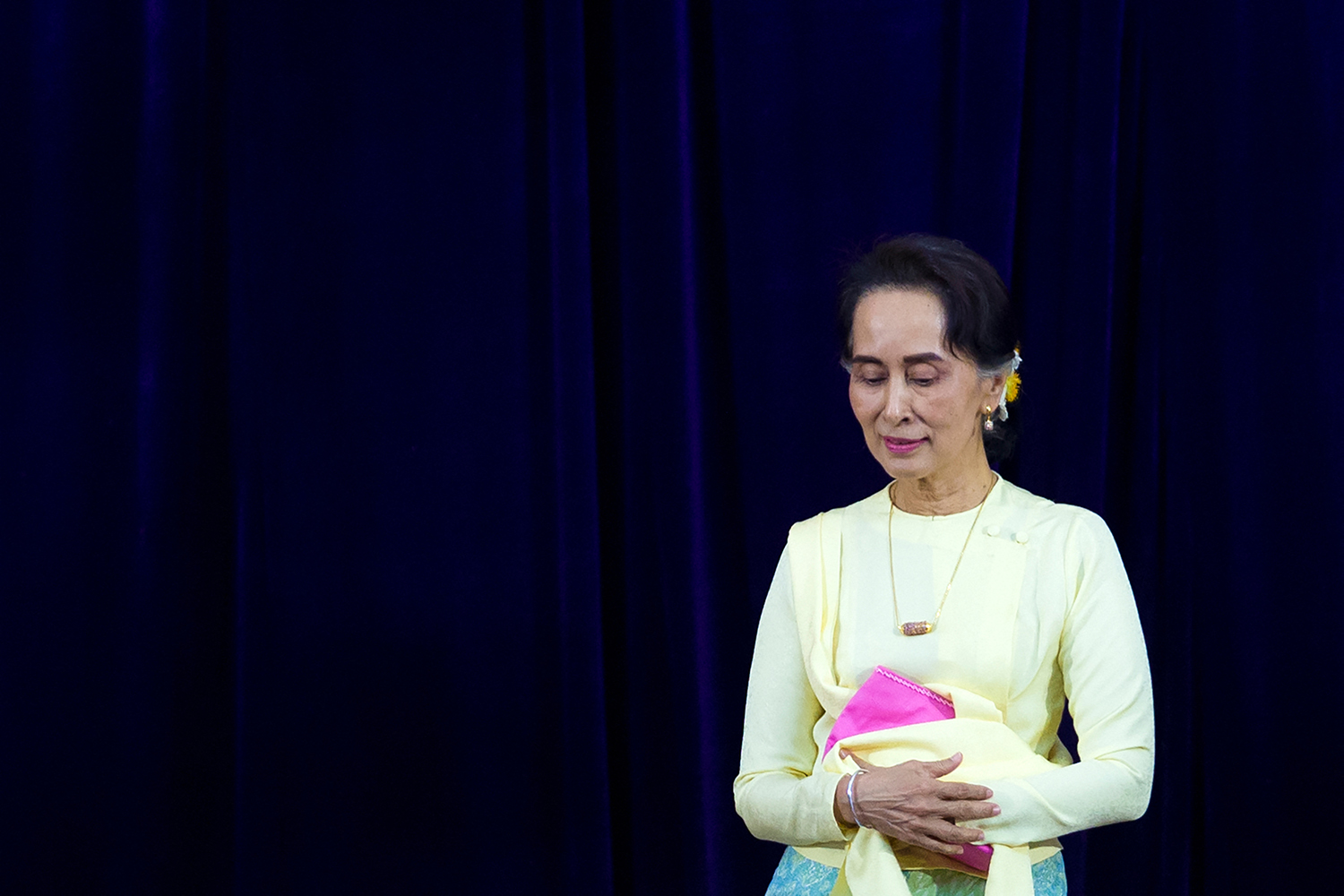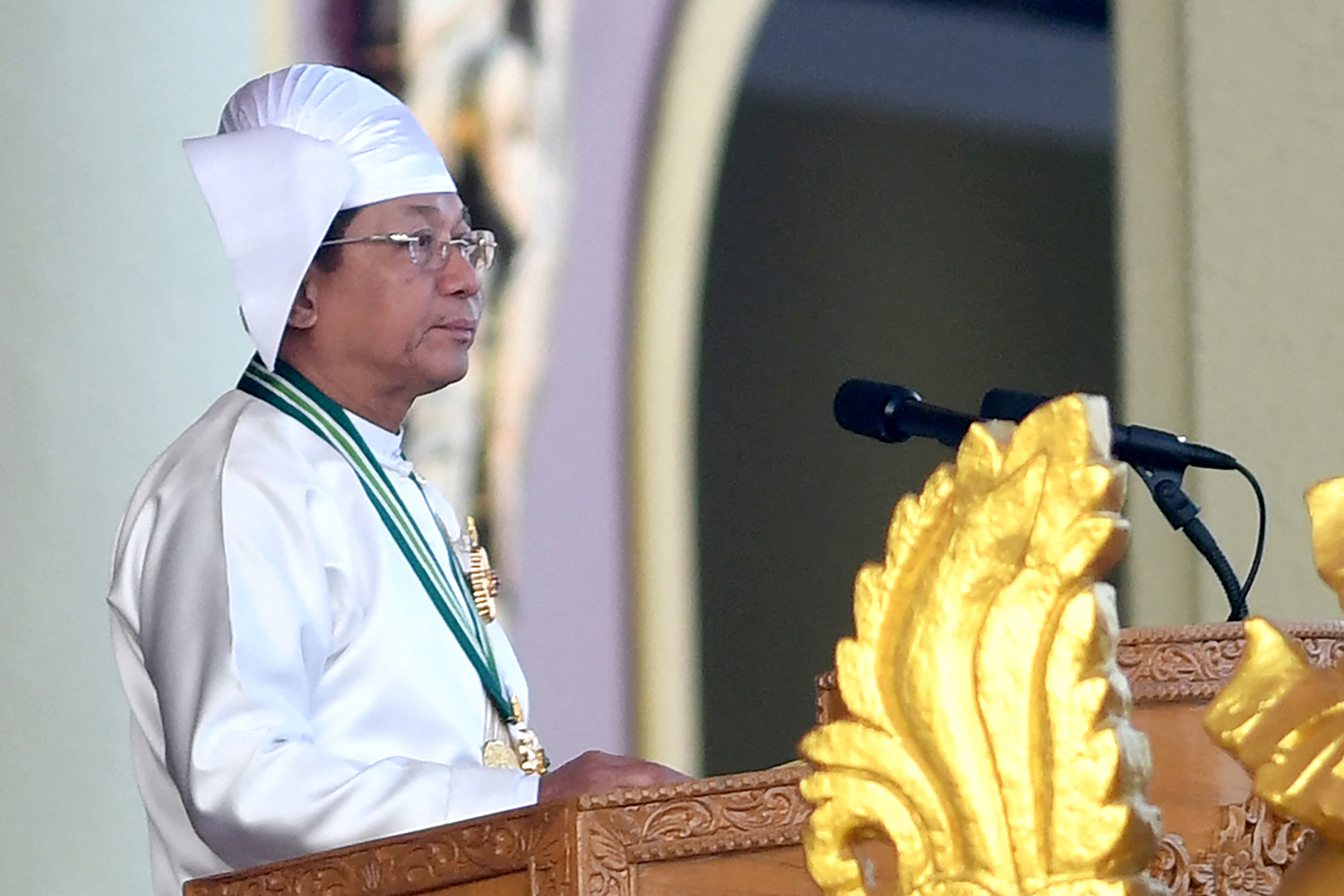The latest Panglong conference did not demonstrate a genuine desire to engage with civil society on the peace process.
AT THE closing ceremony of the second 21st Century Panglong Union Peace Conference on May 29, State Counsellor Daw Aung San Suu Kyi once again stressed the importance of inclusion in the peace process.
“I wish to invite most sincerely all those organisations and individuals that are not yet participating in this conference to join us in this historic endeavour,” she said.
For those civil society groups stuck on the sidelines of the Panglong conference, able to observe but not participate in any meaningful way, this call must have rankled.
They consider themselves to be just, if not more, representative of ordinary people than the leaders of the military, political parties or ethnic armed groups. Leaders of civil society groups told Frontier on the sidelines of the conference that they believe they have an important role to play – that of ensuring that voices of every level of society are being heard by decision-makers.
But the framework for political dialogue affords them very few opportunities to influence the agreements reached by elites meeting in Nay Pyi Taw every six months. Of the 700 official participants, 50 spots are reserved for “ethnic representatives” and 50 for “relevant stakeholders”. The framework says only that these 100 participants are to be handpicked by the government, political parties and ethnic armed groups. There’s little transparency about how this process takes place, or what criteria is used when filling these positions.
Support more independent journalism like this. Sign up to be a Frontier member.
Instead, civil society organisations are given the opportunity to take part in forums held in Nay Pyi Taw and some other locations. They could also make their views known at national-level political dialogue meetings that were held in most but not all ceasefire areas prior to last week’s Panglong conference.
But this is a far cry from genuine civil society inclusion. Of course, that’s before you consider the problems associated with the civil society forum, such as the attempts that were made to censor debate, and the poor organisation of most national-level dialogue meetings which either deliberately or inadvertently excluded some participants. Simply put, the level of inclusion to date has not been good enough and does not reflect a genuine desire to engage with communities on the peace process.
So what’s the case against civil society? Including them would make the process more complex, to be sure.
If you think reaching an agreement with the current batch of stakeholders is tricky, then adding civil society would make it tougher again. Civil society is such a broad church that its members often struggle to reach agreement with each other.
Then there’s the possibility that they’ll refuse to stick to the script, or otherwise be difficult to control. They might even embarrass those in power, whether from the government, military or armed groups.
But there also are plenty of reasons why civil society should be included, along with marginalised groups like women and youth. As we said last week, analysis of 31 comprehensive peace agreements since 1989 shows very clear benefits from civil society inclusion.
In fact, it can reduce the risk of a return to armed conflict by as much as 64 percent. The catch? They must be genuine participants, not just bystanders. So far, that has been the case, and it doesn’t bode well for the sustainability of Myanmar’s planned peace accord.
Aung San Suu Kyi ended her speech in the capital urging “all children of our Union … to become peacemakers”.
This suggests a desire to make peace inclusive. It’s a nice sentiment, but one that’s at odds with current reality, whereby those in charge – that is, the government, military, ethnic armed groups, parliament and registered political parties – are making the decisions on behalf of everyone else, and generally in a manner lacking any semblance of transparency.
If the government and other stakeholders are serious about broader inclusion, they need to begin opening some doors – and fast.
This editorial originally appeared in the June 1 issue of Frontier.







